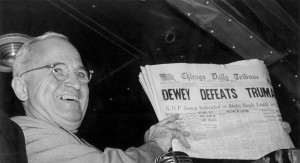John Ellis “Jeb” Bush is feeling hurt at this moment, more than likely.
The former Florida governor was thought to be a shoo-in for the Republican presidential nomination. Then he ran into some fierce — or ferocious — opposition.
On Saturday night, Jeb suspended his campaign.
He was flush was cash. He had collected more than $100 million for his campaign war chest. He spent a lot of it on TV ads in Iowa, New Hampshire and then South Carolina. He got next to nothing for his investment.
He’s not the first formerly prohibitive favorite to fall on his face, as political science professor John Zeitz notes in a Politico essay.
It’s one of the “epic fails” of presidential campaigning.
The most recent example of such a “fail” is the 1980 campaign of GOP candidate John Connally, the former conservative Democrat who sought the Republican nomination, only to fail to win a single delegate.
Big John also was well-funded. He had a huge name familiarity as a former Texas governor, former Navy secretary and a victim of collateral damage on Nov. 22, 1963, when he took one of the bullets intended for President Kennedy on that horrifying day in Dallas.
We have heard much during this campaign about how “big money” corrupts the electoral process. The infamous Supreme Court “Citizens United” decision of 2010 has become a favorite target of Democrats running for the presidency seeking to roll back the effect of the court ruling that gives corporations virtually unlimited spending authority in these campaigns.
Jeb Bush was well-heeled, all right. It didn’t do him much good.
Rest assured that Bush won’t collect much solace in realizing that other big-name, sure-fire “winners” fell by the wayside.
All he needed, it now appears, was a message.
